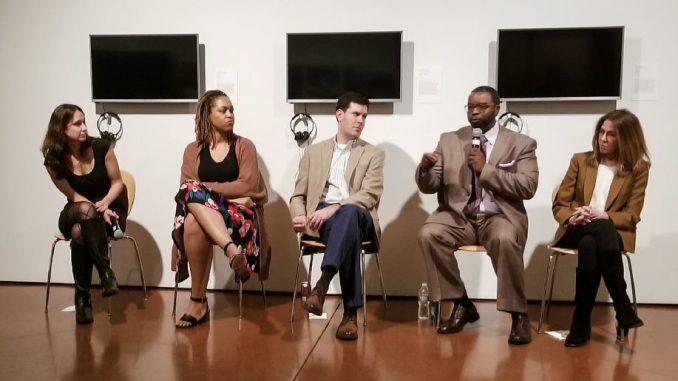
Elizabeth Weill-Greenberg spent more than eight years at the Innocence Project, a nonprofit that helps wrongfully convicted felons in their pursuit for exoneration by reviewing DNA tests, trial transcripts and police reports. But a conference featuring monologues from exonerees is what stuck with her the most.
“They were heartbreaking, and they were moving,” she said. “I kept thinking, ‘Do people only care about these stories because the person telling the story is innocent?’”
This motivated Weill-Greenberg to write a play portraying individuals who committed crimes as children and were harshly sentenced.
“Life, Death, Life Again: Children Sentenced to Die in Prison” is a documentary play written by Weill-Greenberg, the communications director of the New Jersey Institute for Social Justice, a nonprofit combating social inequality. The play is based on the true stories of Sean and Joe, who were sentenced to life in prison for crimes they committed as minors. Weill-Greenberg created the play’s dialogue from interviews conducted with the real-life Sean and Joe.
“I felt this need to do something and share the stories of people who were guilty of the harm they were accused of causing,” Weill-Greenberg said. “I wanted to share their stories and show their humanity.”
Marsha Levick, the deputy director, chief counsel and co-founder of the Juvenile Law Center in Philadelphia, consulted on the play. Levick, a 1976 J.D. alumna and adjunct law professor, has been involved in juvenile law and extreme youth sentencing reform.
“[Weill-Greenberg] was looking for a voice that could place the stories in some legal context,” said Levick, who has been involved in several Supreme Court rulings that have changed the severity of child sentencing. “I think it’s quite moving and quite compelling.”
In the play, Sean was released after serving 21 years in prison for a crime he committed when he was 17 years old. In real life, Joe, whose name was changed for the play, was sentenced to life in prison for a crime he committed at age 14 and is currently advocating for a judge to revise his sentence.
The play also features the true story of Bill, a man who reconciled with Paula Cooper, one of the four teenage girls who killed his grandmother in 1985. Cooper was 15 years old when she committed the crime. Bill originally supported the girl’s death sentence, but eventually forgave her and successfully fought for her sentence to be overturned.
In 2016, the U.S. Supreme Court ruled that anyone with a lifetime sentence for a crime committed when they were a minor would get a new sentencing hearing. Since then, thousands of people have been awarded new sentences or are awaiting one.
Levick said part of the success in the Supreme Court rulings that have changed the approach to sentencing of youth is due to psychology and neuroscience studies in adolescents. Levick said she and others have been able to “implement research as an advocacy tool in changing sentencing policy.”
Laurence Steinberg, a psychology professor and researcher of adolescent psychology, researches adolescent brain development.
“Due to the brain not being fully developed until after the age of 18, adolescents are much more subject to peer pressure, less capable of evaluating risk and therefore are less culpable in crimes,” Steinberg said.
He added brains continue to mature after age 18, which has people asking if minors’ legal protections should be extended.
The play addresses the transformation of the criminal justice system regarding its treatment of children.
Levick said Weill-Greenberg’s play is not just for those who already believe lifetime prison sentences for children are unjust. “The play is for everyone,” she added. “It’s not just about preaching to the converted.”
But Weill-Greenberg said her dream is for the play to change the way people think about incarcerating kids.
“We all know that we have a mass incarceration crisis in our country,” Weill-Greenberg said. “We have a cruel prison system where people are denied their basic human rights and their dignity. We have to talk about the people who have caused harm.”
The play has been performed in New Jersey and will be performed in South Philadelphia on Sept. 25 at The Drake theater.


Be the first to comment